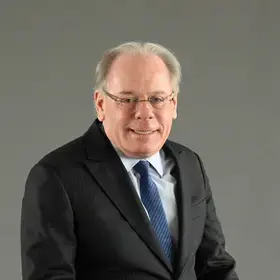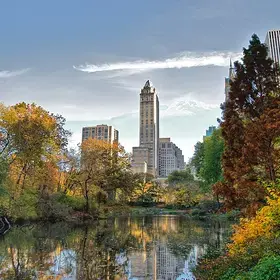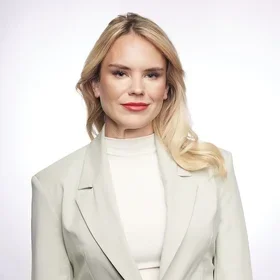On April 11, Daniel Di Martino will be giving a lecture preview of his Columbia summer course, The American Economy, as part of an interactive economics panel event and Columbia Summer program information session. Di Martino is a third-year Ph.D. candidate in economics at Columbia University. He has appeared dozens of times on national television and speaks regularly at events all over the country about his experience growing up in Venezuela. He is currently a Graduate Fellow at the Manhattan Institute and the founder of the Dissident Project.
In our interview, Di Martino discusses the inspiration behind his work, his focus on immigration, and what’s in store for students who will take his Summer Session course. Excerpts:
What was your path to your current career/academic study?
My path to economics began when I was very young in Venezuela. I was living through the consequences of terrible government policy and a dictatorship that destroyed our economy and caused shortages and hyperinflation. That pushed me to learn about what was causing all the trouble that my family and I suffered—and that’s why I began to study economics. I came to America in 2016 and majored in economics at Indiana University in Indianapolis (IUPUI), and then I worked at the University of Kentucky doing economic research until I began the Ph.D. program here at Columbia in the fall of 2020.
Your Ph.D. research is focused on immigration. Can you tell us a bit about that? Why did you choose this focus?
Because I find it fascinating to understand why people move from one place to another, the consequences of moving, and who moves. One of the least-understood questions of immigration is how immigrants “self-select” into leaving their country or area of origin and into the countries or areas they move to. Those who leave their countries of origin aren’t similar to the average person left behind. And even among those who leave, they differ based on their final destination. I'’m very interested in understanding what determines these differences.
What does your day-to-day work/research look like?
I do a lot of different things. I work on my papers for the Ph.D. program, hopefully to include in my dissertation, and that involves a lot of data work. Cleaning data, thinking about what methods to use to answer the questions I have, and then writing and presenting ideas at seminars and colloquiums. I also publish reports and write about immigration policy, mainly with the Manhattan Institute and in news outlets. And I founded the Dissident Project, an organization that sends immigrants who lived in authoritarian countries to high schools all over the United States to teach about the importance of freedom and gratitude for living in America.
How did you design your course, The American Economy? What is the goal of the course?
This summer’s American Economy course will teach everyone who takes it about what makes the U.S. economy different and how to think about economic news—and also introduce the students to the main economic policy debates of our time and why there are major differences in how to tackle them. The goal is for students to know how to understand economic policy debates in the United States and how to analyze the impact and trade-offs of these policies.
Who should take the course?
This is a course that is especially useful for freshmen and sophomores as well as anyone who is interested in economics or public policy. It’s also useful for students majoring in political science interested in understanding the basic economics of the policy debates of our time.
Applications are open for the 2023 Columbia University Summer Session program. The Columbia Summer Session invites you to experience our unique approach to learning, on and off campus. The program offers courses from more than 50 subject areas for students to explore as they experience campus and city life.


